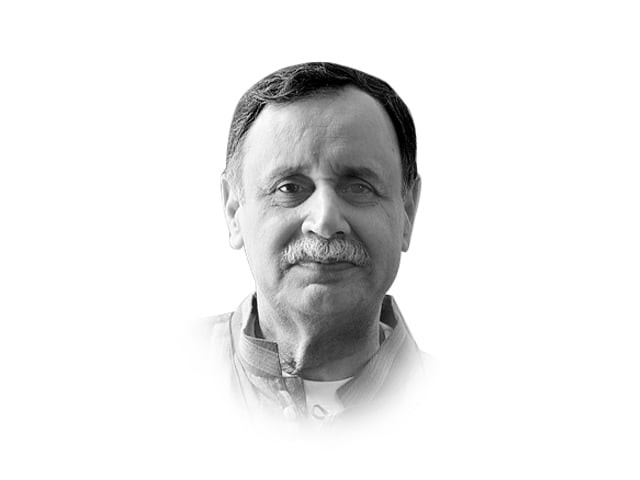Uplifting the poor
There are role models before us who have used reason, science, technology and good common sense to make great progress

It is noble and inspiring for Pakistan to speak of the ideals of the state of Medina and to champion the cause of the people of Kashmir. However, these goals can only be realised by a modern, progressive, peaceful, tolerant and prosperous state. A state with a foreign debt of $115 billion, with 220 million mouths to feed, and a fragile capacity to enforce its writ within its own borders should first focus on ‘putting its own house in order’. This reality cannot be altered by clichés and ‘lip service’ nor can it be replaced by wishes.
There is little to suggest that Pakistan is ready to disengage from its mindset of medieval past and take on the challenges of today’s real world. Just last week, the Council of Islamic Ideology (CII) interpreted the slogan “Corona say darna nahi, larna hay”, as “un-Islamic and immoral”. The federal government unthinkingly obliged and obediently changed the slogan. This small incident sums up the modus operandi of the state — appease the obscurantists, play to the gallery, shun all reasoning and seek band-aid solutions. Likewise, knowing fully well the availability of more accurate scientific solutions, we feel no embarrassment in pampering and wasting tax payers’ money on the Ruet-e-Hilal Committee so that it could act as our arbiter for moons and morals. A nation dominated by such primitive institutions and bogged down in irrelevant inanities is totally out of sync with the competitive world of today — a fact confirmed by Pakistan’s near bottom standing in most human development indicators.
There are role models before us who have used reason, science, technology and good common sense to make great progress. We could learn from Germany’s use of alternative energy to solve our power problem. We could learn how Turkey has developed sewage treatment plants to treat 100% of its sewage, how Finland provides the finest education to its children, how Holland promotes cycles to reduce its carbon footprint, how the UK government uses only 83 pool cars for all its ministries as against the 22,000 cars used by the Sindh government alone, how the Canadian government provides pro-active “access to information”, how Japan runs its railway, how Estonia became the world leader in digitisation, how China lifted 100 million people out of poverty, how Kenya assures social security for every worker, and how Bangladesh brought its fertility rate down to 2.1.
Reducing inequality and poverty ought to be the bottom line of every development. This requires us to think and act ‘differently’ in at least four critical areas of governance. These are: replace existing bureaucracy by small, highly competent and empowered teams (not advisors) to manage each major area of governance; implement population control and bring down the fertility rate to 2.1; digitise all governance processes, eliminate paper files, introduce electronic records and require that all payments are made through mobile phone money transfer systems without anyone having to visit any office.
The fourth issue relates to raising the existing minimum wage of workers across Pakistan to at least Rs30,000 per month. The dysfunctional structures of Employees Old-Age Benefit (EOBI), the provincial social security and labour departments ought to be closed down and replaced by teams as described above. The CNIC number of each worker should be made the EOBI and social security number and the entire database should be placed on a website accessible by any individual or official from any location. The minimum wage, EOBI and social security requirements ought to be consistent across Pakistan, applicable to each employee and not dependent on the number of employees or the type of work in an organisation. Pakistan could save a lot on clichés, promises and ‘bypass’ programmes such as BISP and Ehsaas if it was to earnestly implement the above suggestions.
Published in The Express Tribune, April 6th, 2021.
Like Opinion & Editorial on Facebook, follow @ETOpEd on Twitter to receive all updates on all our daily pieces.















COMMENTS
Comments are moderated and generally will be posted if they are on-topic and not abusive.
For more information, please see our Comments FAQ